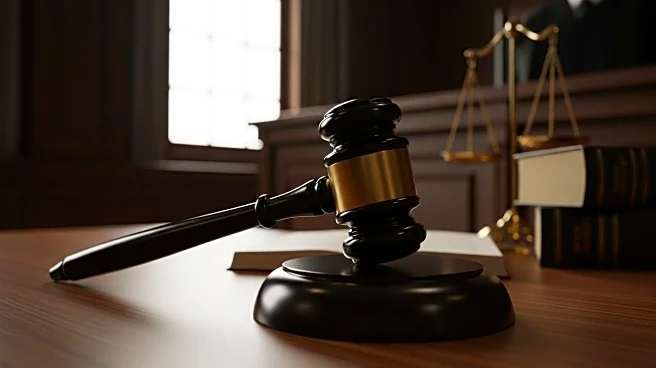What's Happening?
Federal Judge Deborah Boardman sentenced Nicholas Roske, who now identifies as Sophie, to eight years in prison for attempting to assassinate Supreme Court Justice Brett Kavanaugh in June 2022. The sentence was less than the 30 years sought by the Department of Justice but more than the defense's request. Roske traveled from Los Angeles to Kavanaugh's home in Chevy Chase, Maryland, with the intent to kill the justice due to anger over the court's shift to the right. Roske called 911 to inform law enforcement of the plan, leading to her arrest. The case has sparked controversy among conservatives, with Attorney General Pam Bondi stating the Department of Justice will appeal the sentence.
Why It's Important?
The sentencing highlights ongoing tensions surrounding the Supreme Court's decisions and the political climate in the United States. The case underscores concerns about political violence, as seen in recent incidents involving public figures. The Department of Justice's decision to appeal the sentence reflects dissatisfaction with the perceived leniency of the punishment, which they argue does not match the severity of the crime. This case may influence future legal proceedings involving threats against public officials and the judiciary.
What's Next?
The Department of Justice plans to appeal the sentence, seeking a longer prison term for Roske. The appeal process will likely involve further legal scrutiny of the case and its implications for judicial security. The outcome of the appeal could set a precedent for how similar cases are handled in the future, potentially affecting the legal framework surrounding threats to public officials.
Beyond the Headlines
The case raises ethical and legal questions about the balance between mental health considerations and accountability for violent actions. Roske's defense highlighted her mental illness, which may influence discussions on how the legal system addresses mental health in criminal cases. The incident also reflects broader societal issues regarding political polarization and its impact on public safety.










